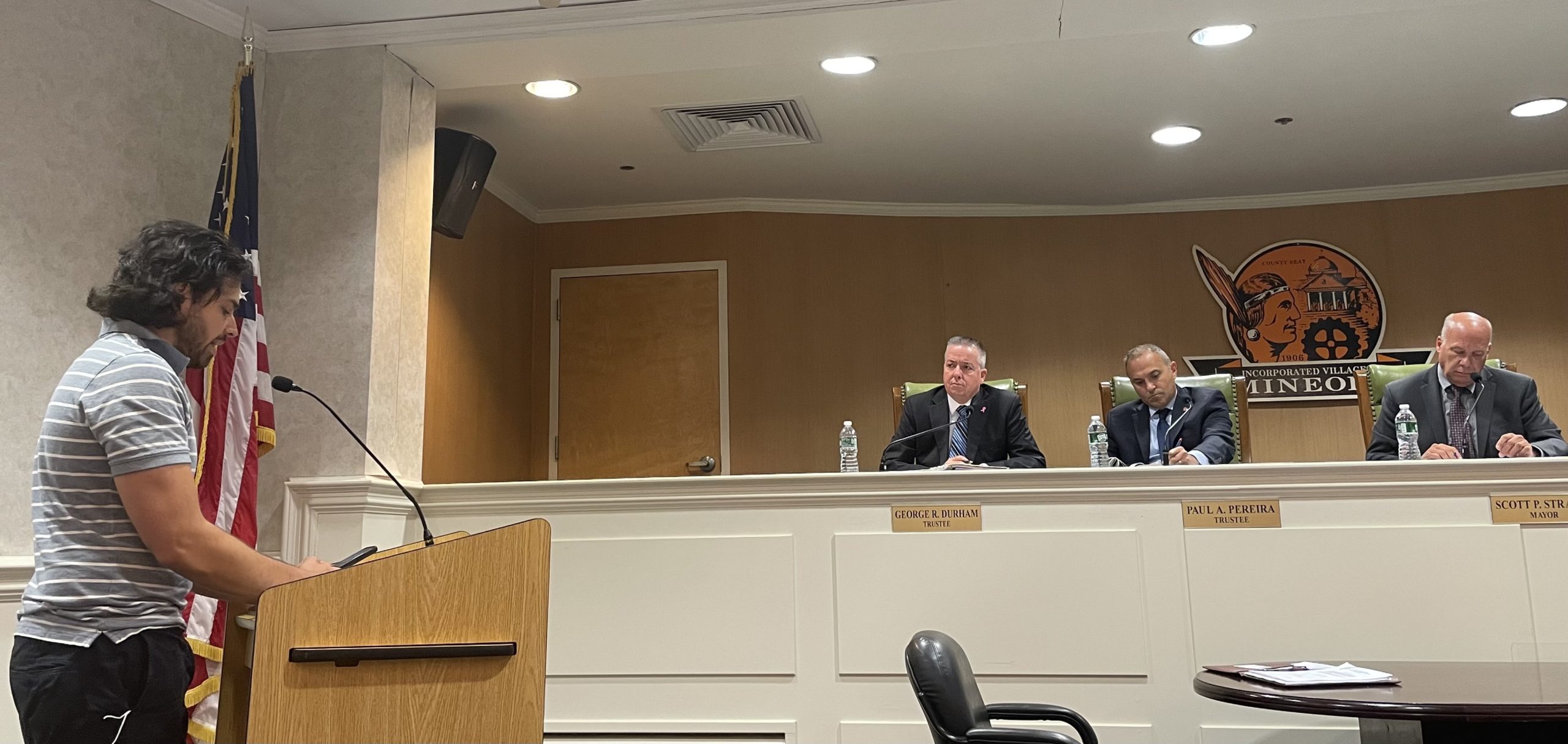The Mineola Board of Trustees heard mixed views from residents Wednesday night on whether the village should ban retail sales of cannabis.
Neighboring villages Floral Park, New Hyde Park and Williston Park each have opted out of the adult-use cannabis industry that New York state projects to reach $350 million annually in tax collections.
Mineola officials will vote in the coming weeks on whether to follow suit under a new state law that made it legal to consume and smoke cannabis in New York wherever smoking tobacco is legal. Municipalities have until Dec. 31 to refuse to allow the retail sale of the substance, though they will not get to share in the generated tax revenue.
Opting out before the December deadline would allow villages to enter back into the program in the future, but it would not work the other way around.
At a public hearing on Wednesday, some residents implored the board to opt out of retail sales while others tried to debunk popular myths about cannabis that opponents of the drug often espouse.
Multiple residents made the point that it would be hypocritical to ban the sale of marijuana when the sale of alcohol is allowed.
Resident Theo Rabinowitz said the village already has numerous establishments where patrons can purchase alcohol, which is arguably more dangerous than cannabis.
“Mineola currently has around 10 bars that serve alcohol in the village and two wine and liquor stores,” Rabinowitz said. “By data taken in this decade, alcohol is significantly more dangerous to the public good than cannabis is.”
Multiple trustees said their decision, when the time comes to make it, will be solely based on economic factors.
Mayor Scott Strauss said his primary concern is subjecting the village to increased traffic, which he said would be exacerbated by neighboring villages’ decision to opt out.
“I’m concerned about the congestion and the traffic that the only stores in this area would cause on our roads,” Strauss said. “I’m not so sure the revenue gained by having a store or two in the village is worth added traffic and parking issues.”
Strauss also said he is currently unaware of where he is going with this proposal, but wanted to share with the public his opinions on the matter.
Trustee and Deputy Mayor Paul Pereira expressed similar sentiments. He said that uncertainty from the state about the Marijuana Regulation and Taxation Act makes it unclear how revenue will be distributed to villages.
“We just don’t know enough yet about the economic impact on the village and the impact it will have on our infrastructure and parking,” Pereira said. “For me, it is a wait and see approach.”
According to a news release from Carl Heastie, the speaker of the New York State Assembly, cannabis sales will be subject to a 4 percent tax that will be split between the county and municipality of sale at 1 percent and 3 percent, respectively.
Trustee George Durham, on the other hand, does not believe the village should opt out of the retail sale of marijuana. He mentioned prohibitions against underage use and previous laws the village passed that would put any cannabis dispensary in an industrial zone, away from business hubs such as Jericho Turnpike, as reasons to consider retail sale.
“I personally don’t think that we should opt out,” Durham said. “In states like Colorado and Massachusetts, some dispensaries are where the highest-paying jobs are in their particular community, and we can keep the ball rolling.”
Any potential opt-out may not be permanent. Residents can petition the outcome of a vote, which if successful triggers a process that places the law on the ballot at the next state or local election.



